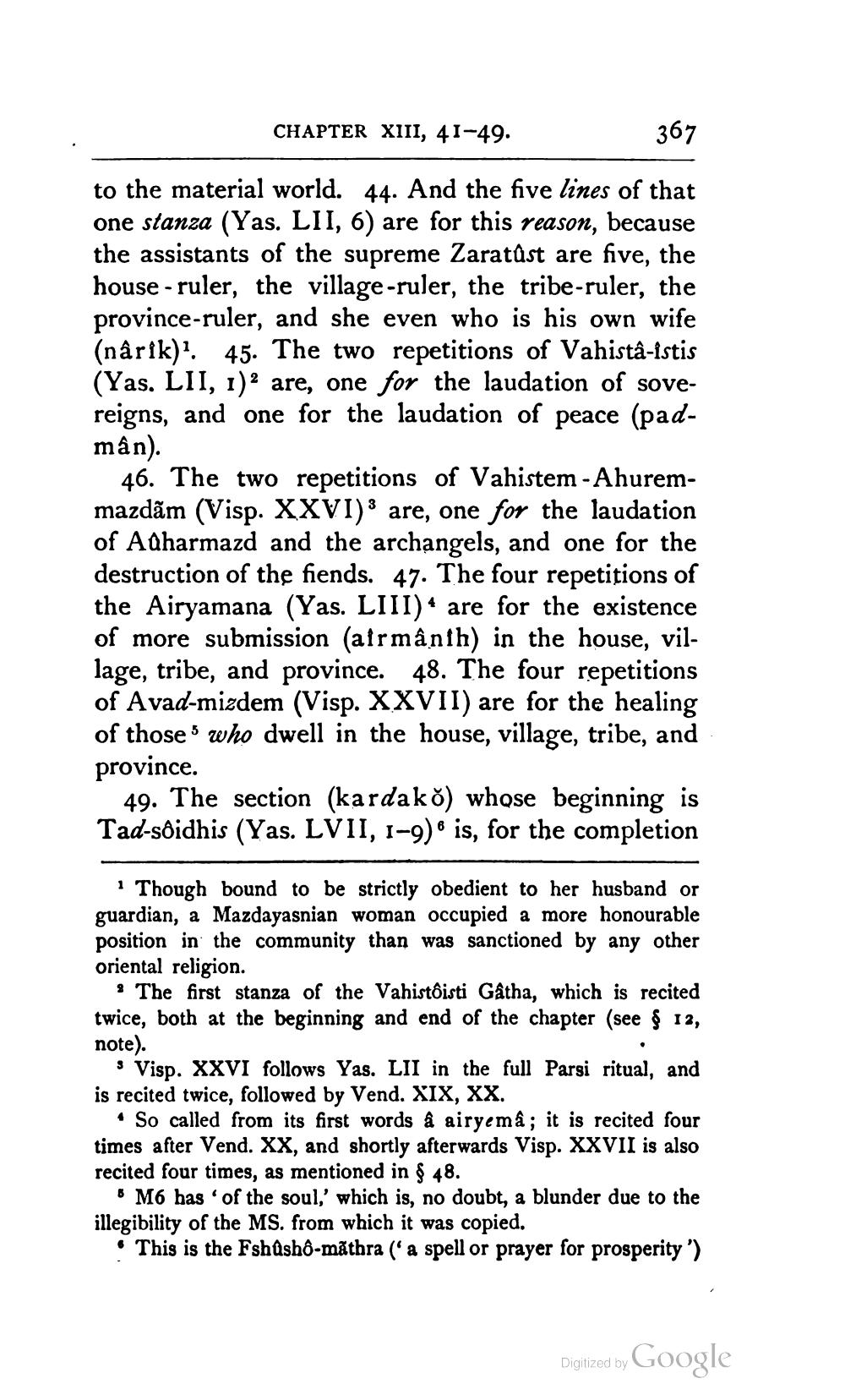________________
CHAPTER XIII, 41-49.
367
to the material world. 44. And the five lines of that one stanza (Yas. LII, 6) are for this reason, because the assistants of the supreme Zaratûst are five, the house - ruler, the village-ruler, the tribe-ruler, the province-ruler, and she even who is his own wife (nârik)? 45. The two repetitions of Vahistâ-istis (Yas. LII, 1)2 are, one for the laudation of sovereigns, and one for the laudation of peace (padmân).
46. The two repetitions of Vahistem - Ahuremmazdãm (Visp. XXVI): are, one for the laudation of Adharmazd and the archangels, and one for the destruction of the fiends. 47. The four repetitions of the Airyamana (Yas. LIII)* are for the existence of more submission (airmânih) in the house, village, tribe, and province. 48. The four repetitions of Avad-mizdem (Visp. XXVII) are for the healing of those 5 who dwell in the house, village, tribe, and province.
49. The section (kardako) whose beginning is Tad-sõidhis (Yas. LVII, 1-9) ® is, for the completion
Though bound to be strictly obedient to her husband or guardian, a Mazdayasnian woman occupied a more honourable position in the community than was sanctioned by any other oriental religion.
. The first stanza of the Vahistôisti Gâtha, which is recited twice, both at the beginning and end of the chapter (see § 12, note).
s Visp. XXVI follows Yas. LII in the full Parsi ritual, and is recited twice, followed by Vend. XIX, XX.
So called from its first words à airyemâ; it is recited four times after Vend. XX, and shortly afterwards Visp. XXVII is also recited four times, as mentioned in $ 48.
M6 has of the soul,' which is, no doubt, a blunder due to the illegibility of the MS. from which it was copied.
• This is the Fshůshô-mathra (a spell or prayer for prosperity')
Digitized by Google




